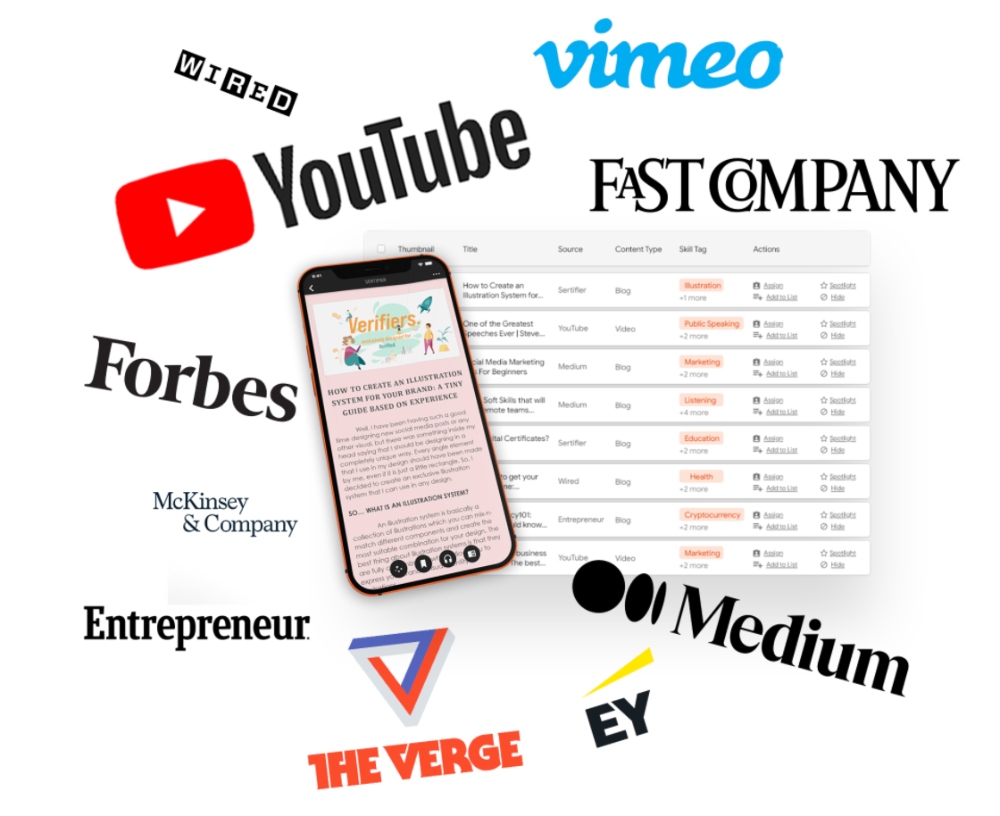Higher and further
“A lot of people resist transition and therefore never allow themselves to enjoy who they are,” wrote poet Nikki Giovanni. “Embrace the change, no matter what it is; once you do, you can learn about the new world you’re in and take advantage of it.”
Whether or not you’re looking to make a transition to embrace yourself and what it is that entails, or simply need to boost your career opportunities by dusting off your skill set, going back to college can simultaneously seem like a great idea and a risky bet.
![]()
And both vantage points would be right. Jordan Weissmann, writing at Slate, notes that for the non-traditional student, graduation rates are nearly 20 percent lower. Completion rates are lower still for non-traditional students who are taking classes on less than a full time schedule.
So, for those of us who are intellectually curious, yet conscious of not wanting to sink an investment of time, money, and energy into an unproductive and unprofitable opportunity to improve, what are our options?
Timely ways to investigate are at hand
If you’re just in the preliminary exploration phase of what might be of interest, listen to or watch a lecture on the topic. With hundreds of sites that offer such lectures, it can be overwhelming to find a place to begin that’s both reputable and interesting.
That’s why the launch of Find Lectures is a boon to the prospective student. In one place, you’ve got a searchable catalog of nearly 26,000 free lectures, many 60-minutes or less, from TED, the Library of Congress, Talks at Google, and more.
For those who want more than just an exploratory conversation about a topic, there are multiple colleges and universities who have opened MOOCs, or massive open online courses. MOOCs, many of which are free, can be found for an almost unlimited number of courses, with some leading to degrees, while others allow you to get the knowledge, information, or skill, albeit with no degree path following.
EdX and Udacity
An example of the different types of MOOC providers can be found by looking at EdX and Udacity.
EdX, a consortium of colleges and universities banded together to offer generally free courses on a wide variety of topics, includes such providers as MIT, Harvard University, Boston University, UC Berkeley, and Dartmouth College, among others.
Founded through a joint effort between MIT and Harvard in 2012, EdX currently sees more than 7 million students taking one or more of the over 700 courses that are currently offered.
In an online environment, the EdX courses feature weekly learning targets, which are taught using a blend of online video content, electronic textbooks, and interactive learning exercises, including collaboration with other peers taking the course through online discussion forums. While the majority of the courses are free, students who choose to take courses to complete an EdX Verified Certificate do face varying fees. All students who choose to audit courses can do so at no cost.
Udacity is similar, yet different, in their approach. As with EdX, students take online courses that feature a blend of online video content and peer-to-peer collaboration, but Udacity courses are aimed towards those seeking skill development in computer sciences. As such, one sees that the courses are developed through partnerships with tech businesses such as Google and AT&T, as opposed to varying universities. Initially created as an extension of free computer classes at Stanford in 2011, the Udacity courses offer a trial enrollment period, after which course continuance costs varying fees per class.
The Udacity brand has focused on creating skill development and certifications that are recognized within the varying branches of the tech industry.
In an attempt to expand the reach of their offerings, in 2014, Udacity partnered with Georgia Institute of Technology to offer a MOOC degree in computer science at a price point of only $7,000, significantly lower than other similar Master’s programs.
A great dip of the toe
As you stop and think about how to take advantage of the new world, it’s okay to be hesitant, and even scared. You’ve got to find the sweet spot in finding or enhancing your career, with skills that are necessary to do so, and realize a return on your investment in time, money, and satisfaction quickly.
It’s important to do the things that we love, that are emotionally rewarding and financially remunerative, but we also realize that we live in a world, especially for the mid-career professional that is hesitant to allow a great deal of time to make that investigation into how to do so.
Using these tools, combined with self-reflection, can help you make the most of that time as you consider what’s out there for you, just waiting.
#Education
Roger is a Staff Writer at The American Genius and holds two Master's degrees, one in Education Leadership and another in Leadership Studies. In his spare time away from researching leadership retention and communication styles, he loves to watch baseball, especially the Red Sox!









































Pingback: Udacity to offer a $999 nanodegree in digital marketing - The American Genius